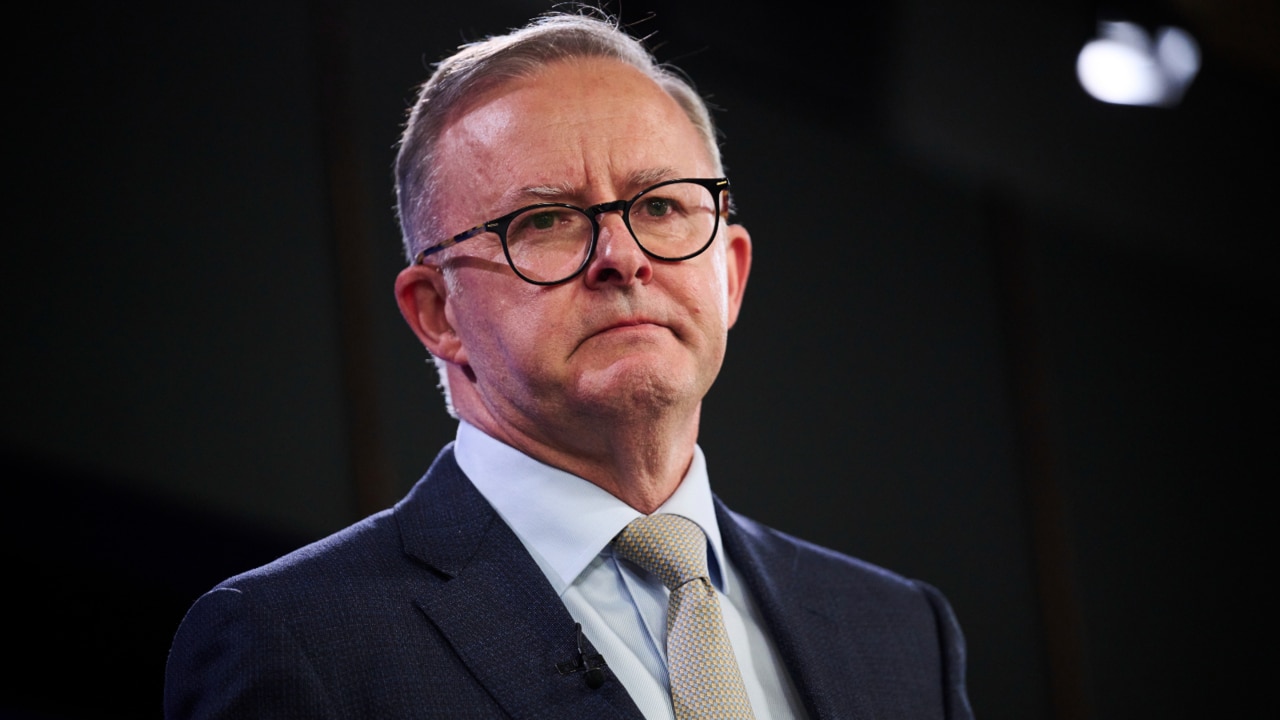Jim Chalmer’s super change erodes trust with voters, unveils a new risk Labor will go futher
Treasurer Jim Chalmers and PM Anthony Albanese just broke the trust of Australians. Their superannuation backflip also reveals another risk for voters and their money.

Labor has eroded trust with voters by using a future election loophole to justify its superannuation backflip and failing to rule out more changes in the future.
Given multiple opportunities to offer an iron-clad assurance to the 99.5 per cent of Australians not impacted by the concessional tax changes flagged on Tuesday, Anthony Albanese avoided a definitive answer.
“There will be no changes, no changes this term,” he told reporters.
His promise might have held more weight if minutes earlier the Prime Minister and Treasurer Jim Chalmers hadn’t announced plans to rein in tax concessions for Australians with more than $3 million in their super accounts from mid-2025.
That way, Albanese and Chalmers argued, Labor will essentially be taking the proposal to another election even if they legislate it beforehand.
Let’s just unpack that time travelling wizardry for a minute.
In the lead up to the 2022 election Labor said there would be “no changes” to super.
Last week the federal government crab-walked that pledge to “no major changes”.
Now, Labor have skipped two years into the future, secured a 2025 “mandate” and brought it back to 2023 vowing to deliver legislation this term.
So how can any Australian now trust that the government won’t just jump back into their time travelling Delorean and use the same formula to justify more changes?
Labor’s calculus that reining in tax concessions for millionaires with mega super balances will be a palatable proposal to most voters is likely a fair one.
The 80,000 Australians with more than $3m in the super accounts will be free to keep making contributions, but their earnings will be taxed at the “less generous” rate of 30 per cent, rather than the current 15 per cent.
In two year’s time, it’s unlikely Australians will be going to the polls fretting over a policy that claws back $2 billion in concessions from the top 0.5 per cent.
And if in the interim if Opposition leader Peter Dutton wants to “go to war” on behalf of millionaires chasing taxpayer dollars, he’s more than welcome says Chalmers.
But the real risk for Labor goes much further than super.
The concessions backflip and the accounting trickery used to pull it off will spook voters and feed a broader narrative around trust in this government.
Australians may rightly be wondering how assured Chalmers’ promise in 2022 that Labor didn’t have “any proposals for tax increases” beyond its multinationals policy really is.
WHOSE SUPER IS AFFECTED?
Do you have $3 million or more in your superannuation?
If the answer is “no” you are one of the 99.5 per cent of Australians with a super account who will not be impacted by this proposed change.
If the answer is “yes” then from mid-2025 this change will affect you.
It means from July 1 that year, any earnings you make on your superannuation balance will be taxed at the concessional rate of 30 per cent, instead of the current rate of 15 per cent.
Rules around how much people can contribute to their super and overall balance caps in the retirement phase all remain unchanged.
The concessions apply to the amount your balance goes up thanks to earnings based on your various super investments doing well.
SO HOW MANY PEOPLE ARE AFFECTED?
About 80,000 Australians will be impacted by the change.
According to Treasury, there are about 33,500 Australians with between $3m and $4m in super, there are about 16,500 with between $4m and $5m and about 23,000 people with between $5m and $10m.
There are about 7,000 Australians with more than $10m in their super.
For comparison, the average Australian has $150,000 in super.
WHAT HAPPENS NOW?
The federal government will draft and introduce legislation changing the concessional tax rates for super earnings above $3m.
If they gain support to pass it through the parliament, the changes will come into effect from July 1, 2025.
IS THERE A CHANCE IT STILL WON’T HAPPEN EVEN IF LEGISLATED?
Technically yes.
If the Coalition decides to oppose the changes and takes that position to the 2025 federal election, it could repeal Labor’s legislation before it comes into effect.
Originally published as Jim Chalmer’s super change erodes trust with voters, unveils a new risk Labor will go futher




